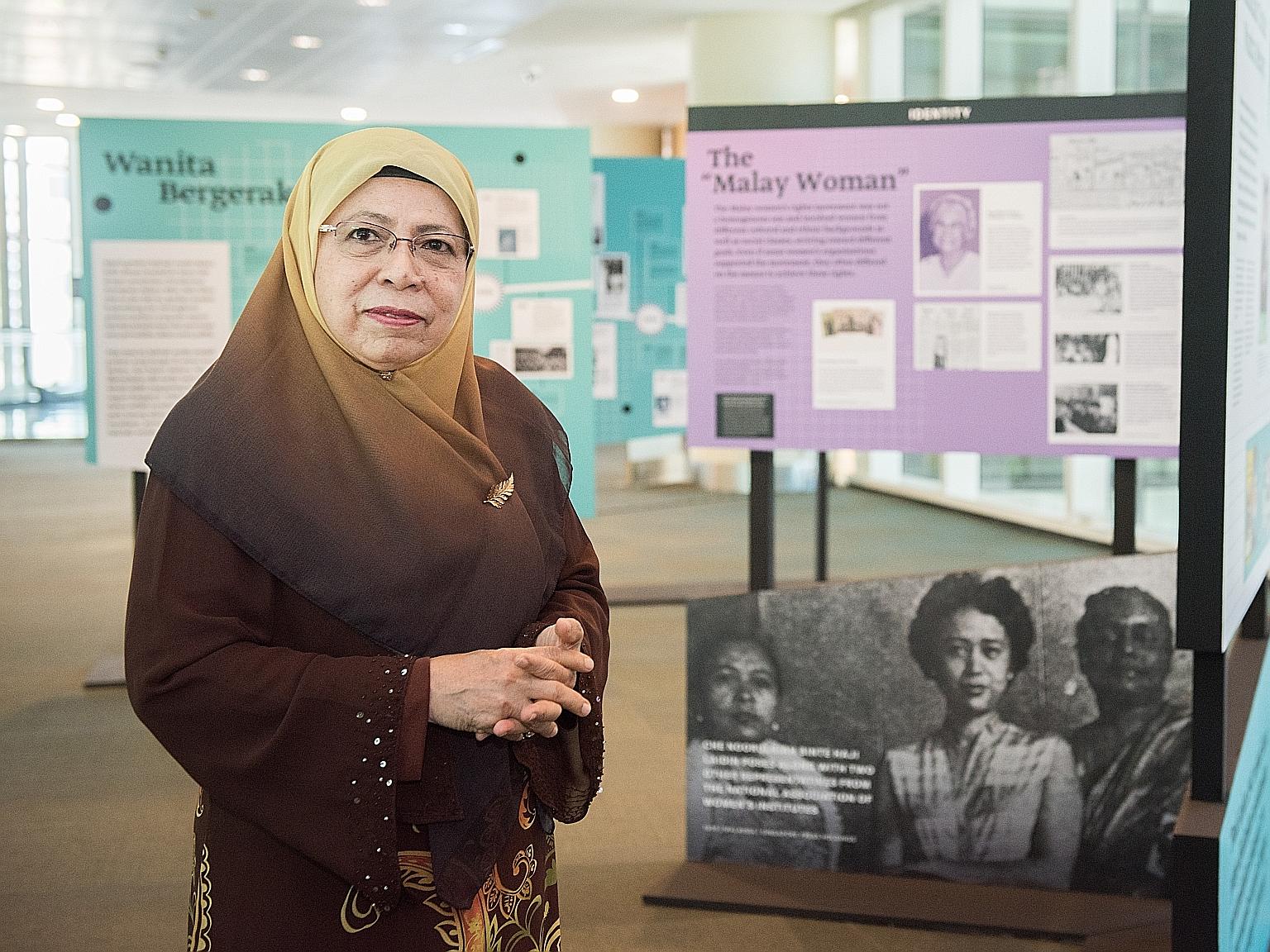Fighting for the rights of Malay women
Roving exhibition traces history of Malay women's rights movement in S'pore
Sign up now: Get ST's newsletters delivered to your inbox

Madam Fatimah Azimullah's father found out only when she was in Primary 5 that she had been attending school. In her childhood days, conservative parents believed that daughters did not have to go to school and should be married off when they reach marriageable age.
ST PHOTO: SYAMIL SAPARI
When Madam Fatimah Azimullah, 72, started primary school, her mother hid that fact from her father.
The busy businessman only found out when she was in Primary 5 and by then he "couldn't make me leave", recounted the former president of the Singapore Muslim Women's Association (PPIS).
"To him, girls don't need to go to school. When they come to a marriageable age, marry them off, and that's it. That was the thinking of conservative parents of that time," she told The Straits Times yesterday.
Madam Fatimah is one of the women featured in the Women in Action exhibition, which traces the history of the Malay women's rights movement in Singapore.
Organised by the Malay Heritage Centre, the exhibition will travel to five libraries, starting with the Central Library from today, and will run till Oct 31.
Said Madam Fatimah: "I was in secondary school when I realised education was so important. You see people who are educated, they are able to have better living standards and work and they can be independent."
After completing her O levels, she became an English and science teacher at a primary school.
She joined PPIS as an honorary secretary when she was 25 and helped the non-profit organisation establish social and early childhood education services, and assisted in efforts to support single mothers.
"Some women don't have extended families to help them when they're divorced, so they don't get enough support... That's one reason why we set up a centre in the 80s to help single parents."
Exhibition curator Nasri Shah, 27, spent 2½ years on the project and compiled the timeline display by researching old newspaper articles.
He said: "We then identified some organisations and individuals because articles don't talk much about emotions, the blood, sweat and tears behind (the women's) initiatives."
He also interviewed the Singapore Council of Women's Organisations and Madam Rita Zahara, the granddaughter of Malay activist Che Zahara Noor Mohamed.
Madam Rita, 42, a former journalist turned entrepreneur, said: "When I researched about her, I found out about her involvement in the Women's Charter, and she also raised the minimum age for girls to be married to 16. She lobbied for women to be educated."
"She inspired me to be involved in humanitarian work around the region, to empower women and children to promote access to education."
The exhibition will also be shown at the Ang Mo Kio Public Library, Tampines Regional Library, Jurong Regional Libary, as well as the Yale-NUS College Library.
Correction note: An earlier version of this story the exhibition will be shown at the NUS Yale Library. It should be the Yale-NUS College Library. We are sorry for the error.


